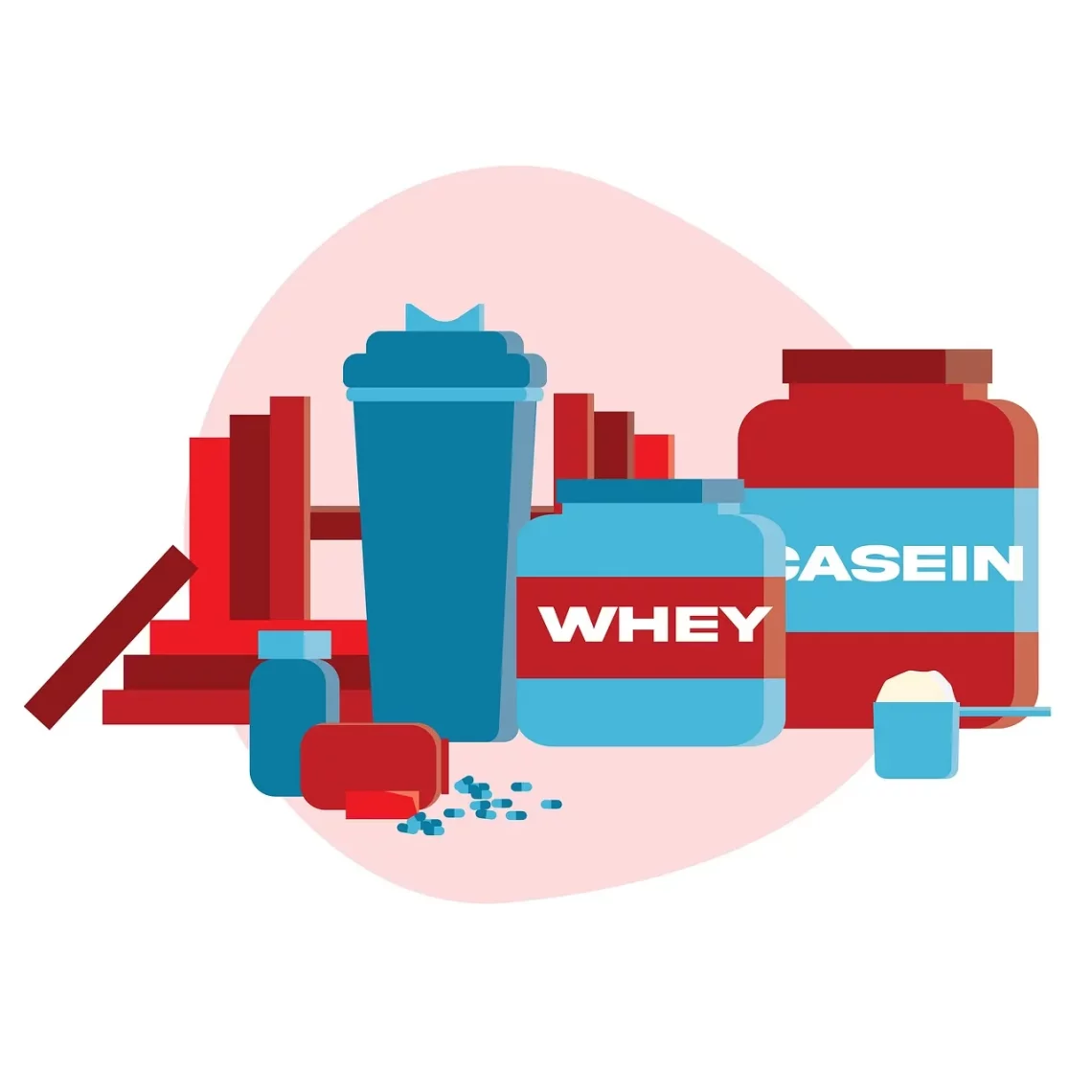
The Benefits of Low Sodium Protein Powder for Health and Fitness
In recent years, the emphasis on health and fitness has surged, leading many individuals to explore various dietary supplements to enhance their wellness journey. Among these, protein powders have emerged as a popular choice for both fitness enthusiasts and those looking to maintain a balanced diet. However, the traditional protein powders often come with high sodium content, which can be a concern for many. As the understanding of nutrition deepens, there’s a growing trend towards low sodium protein powder, which offers a range of health benefits without compromising on protein intake.
Low sodium protein powder not only caters to those who are monitoring their salt intake for health reasons but also appeals to athletes and fitness aficionados who want to optimize their performance. Reducing sodium can help lower blood pressure and decrease the risk of heart disease, making it a wise choice for anyone looking to improve their overall health. This shift toward lower sodium options reflects a broader movement in the food industry, where consumers are increasingly aware of the impact of their dietary choices. As we delve deeper into this topic, it becomes clear that low sodium protein powder is more than just a dietary supplement; it’s a strategic choice for those committed to their health and wellness goals.
Understanding Sodium and Its Impact on Health
Sodium is an essential mineral that plays several critical roles in the body, including regulating blood pressure and maintaining fluid balance. However, the modern diet often contains excessive amounts of sodium, primarily from processed foods. This elevated sodium intake can lead to numerous health issues, most notably hypertension, or high blood pressure. High blood pressure is a significant risk factor for heart disease, stroke, and kidney problems.
The recommended daily intake of sodium for most adults is around 2,300 milligrams, but many people consume much more than this. Excessive sodium can cause the body to retain water, leading to swelling and increased blood pressure. Over time, this strain on the cardiovascular system can result in serious health complications. Therefore, reducing sodium intake is a proactive step toward better health.
Low sodium protein powder is an excellent alternative for those looking to keep their sodium levels in check while still obtaining the necessary protein for muscle repair and growth. By choosing a low sodium option, individuals can support their fitness goals without the adverse effects associated with high sodium consumption. Additionally, low sodium protein powders often contain higher quality ingredients, focusing on natural sources of protein without the unnecessary additives that can be found in traditional powders.
Furthermore, many low sodium protein powders are designed to be versatile, allowing them to blend seamlessly into smoothies, baked goods, and other recipes. This adaptability makes it easier for individuals to incorporate protein into their diets without the added salt. As more people recognize the importance of managing sodium intake, low sodium protein powder stands out as a beneficial option for both health-conscious individuals and athletes alike.
The Advantages for Active Lifestyles
For those who lead active lifestyles, protein is a fundamental component of their diet. It is essential for muscle recovery, growth, and overall performance. However, the benefits of protein consumption can be overshadowed by the negative effects of excessive sodium. Low sodium protein powder provides the necessary protein without the additional salt, making it a smart choice for athletes and fitness enthusiasts.
One of the primary advantages of low sodium protein powder is its ability to support muscle recovery. After intense workouts, muscles need protein to repair and grow stronger. Consuming protein immediately after exercise can help reduce muscle soreness and improve recovery times. Low sodium options ensure that athletes receive the protein they need without the risk of elevating their sodium levels, which can lead to dehydration and hinder performance.
Moreover, maintaining hydration is crucial for anyone engaging in physical activity. High sodium intake can lead to increased thirst and water retention, potentially affecting performance. Low sodium protein powder allows individuals to hydrate effectively while still meeting their protein needs. This balance is essential for athletes who need to maintain optimal performance levels during training and competitions.
Additionally, many low sodium protein powders contain added nutrients that can further enhance athletic performance. Ingredients such as vitamins, minerals, and amino acids can aid in energy production and muscle function. By choosing a low sodium option, individuals can not only meet their protein requirements but also benefit from these additional nutrients, contributing to a well-rounded approach to health and fitness.
In summary, low sodium protein powder is a valuable addition to the diet of anyone with an active lifestyle. It supports muscle recovery, aids in hydration, and provides essential nutrients without the downsides of high sodium consumption. As fitness continues to be a priority for many, the demand for healthier, low sodium options will likely continue to grow.
Promoting Heart Health through Dietary Choices
Heart health is a significant concern for many individuals, and dietary choices play a crucial role in maintaining cardiovascular wellness. High sodium intake is directly linked to an increased risk of heart disease, making it essential to consider sodium levels when selecting dietary supplements like protein powder. Low sodium protein powder can be part of a heart-healthy diet, promoting overall cardiovascular health.
Research has shown that reducing sodium intake can lead to lower blood pressure and a reduced risk of heart disease. By opting for low sodium protein powder, individuals can enjoy the benefits of protein while minimizing their sodium intake. This is particularly important for those with pre-existing conditions such as hypertension or other cardiovascular issues.
Incorporating low sodium protein powder into a balanced diet can help individuals achieve their health goals while supporting their heart. This supplement can easily be added to various foods and beverages, from smoothies to oatmeal, providing a convenient way to increase protein intake without the added sodium.
Furthermore, many low sodium protein powders are made from high-quality, natural ingredients that further support heart health. For instance, plant-based protein sources, such as pea or brown rice protein, are often lower in sodium and rich in fiber, which is beneficial for heart health. Fiber helps lower cholesterol levels and improve digestion, creating a holistic approach to cardiovascular wellness.
Additionally, a low sodium diet encourages individuals to focus on whole foods, which are naturally lower in sodium and higher in nutrients. Fruits, vegetables, whole grains, and lean proteins should make up the bulk of any diet aimed at promoting heart health. By choosing low sodium protein powder, individuals can align their supplement choices with these dietary goals, leading to improved overall health.
Ultimately, the link between sodium intake and heart health underscores the importance of making informed dietary choices. Low sodium protein powder is a simple yet effective way to incorporate protein into the diet while prioritizing cardiovascular wellness. As awareness of heart health continues to grow, low sodium options will likely play an increasingly vital role in dietary recommendations.
Enhancing Overall Wellness with Low Sodium Protein Powder
In addition to the specific benefits related to heart health and active lifestyles, low sodium protein powder can contribute to overall wellness in various ways. A well-balanced diet that includes adequate protein is essential for maintaining a healthy weight, supporting immune function, and promoting mental health.
Protein plays a critical role in weight management. It is more satiating than carbohydrates or fats, meaning it can help control hunger and reduce cravings. By incorporating low sodium protein powder into meals or snacks, individuals can enhance their satiety, making it easier to maintain a healthy weight. This can be particularly beneficial for those looking to lose weight or manage their weight long-term.
Additionally, protein is vital for immune function. It supports the production of antibodies and helps repair tissues, making it crucial for overall health. Low sodium protein powder provides an excellent source of protein without the added sodium, ensuring that individuals can support their immune system without risking the negative effects associated with high sodium intake.
Mental health is another area where nutrition plays a significant role. Research suggests that diets high in protein can positively impact mood and cognitive function. By choosing low sodium protein powder, individuals can support their mental wellness while ensuring they are not consuming excess sodium, which can contribute to feelings of lethargy and discomfort.
Moreover, many low sodium protein powders are fortified with additional nutrients like vitamins and minerals, which can further enhance overall wellness. These added nutrients can support various bodily functions, from energy production to bone health, creating a comprehensive approach to nutrition that prioritizes both physical and mental health.
In summary, low sodium protein powder offers a multitude of benefits that extend beyond just muscle recovery and heart health. By seamlessly fitting into a balanced diet, it supports weight management, immune function, and mental well-being. As individuals continue to prioritize their health, incorporating low sodium protein powder into their nutrition regimen can be a valuable step towards achieving their overall wellness goals.
**Disclaimer:** This article is for informational purposes only and should not be considered medical advice. For any health-related concerns, please consult a qualified healthcare professional.




